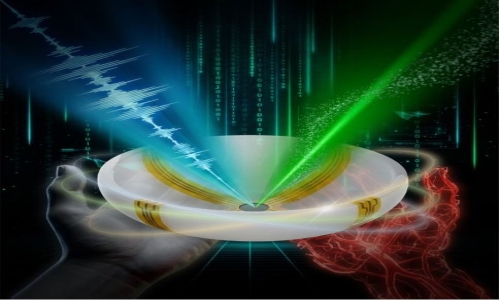


 2:41:6
2:41:6  2024-09-25
2024-09-25  1129
1129
21 And the flesh of fowl such as they desire.
This realm of experience, the janna (garden) is timeless. Man can only understand it from the reference point of his present existence which is based on existential needs, one person serving another. The mithal (metaphor) of the eternally youthful servants implies that in the non-time zone of the next life that state is no longer subject to decay.
The mentioning of meat in the garden is significant. It has been given its prominent position in this life because it is regarded as an important aspect of diet. It contains much of what man needs in terms of amino acids, minerals and vitamins. Traditionally, the practices of Islam encouraged the Muslims to eat it once or twice a week. Today, modern dieticians recommend that meat should only be eaten twice and fish once a week, the rest of the diet being composed of grains and vegetables. Traditionally, people ate animals that could be caught locally within the appropriate season. Today one finds people eating large quantities of meat and fat in places such as the Arabian peninsula where the temperature is exceedingly hot. Eating foods out of location and season only causes sickness. The aya describing the availability of meat in the garden is a mithal and does not mean that there are hunting parties in the garden. The indication is that the nourishment is of the highest and subtlest values.
22 And pure, beautiful ones,
23 The like of the hidden pearls:
24 A reward for what they used to do.
The hur (virgins of paradise) are described as pearls, maknun, hidden, kept, highly treasured; from the word kanna, to conceal, shelter. They are forever preserved in that translucency and purity.
The state of the garden is the mirror image, the reflection, of the quality of one's actions in this world. "A reward for what they used to do": one's reward is the action itself. It does not come later in time because in Reality there is no time. Action has its own reward within itself in this time zone. In the next life, where there is no time, it manifests again in meaning, in a state in which the soul sees itself.
Man perceives that having done a good turn for someone, he is paid back years later. Those with inner sight derive joy at the time of the action itself. They do not care for the visible outcome, which is completely secondary. It is like an expert gardener who, when he sees the plant nourished, visualizes the entire cycle of growth and decay. It is only the greedy and hungry fellow who simply waits for the fruit. The gardener who is totally in the joy of the process of gardening has already envisioned the fruit and has gone beyond it. Only the animal waits for the thing to manifest in order to eat it. From the point of view of the man of knowledge, the man who has abandoned himself, his action instantly contains the reward. And yet, there are also fruits that materially appear, but their unfoldment is in time and the seeker wants to know the non-time. It is the subtle being who recognizes that his action is its own reward. The quality of his reward is according to the source of his action, which is his intention. The being who has complete presence and awareness sees how the rewards and the actions are not separate.
25 They shall not hear therein vain or sinful discourse,
26 Except the word peace, peace.
Laghw (foolish talk) is that which is empty of meaning. The root of the word is lagha to talk nonsense, to make mistakes; in another form, it means to invalidate, nullify, eliminate. From lagha comes the word lugha, language. Lughawi means an expert in language and laghwi means someone who talks both a great deal and a lot of nonsense. Notice that an expert in language and one who talks nonsense are almost the same word.
"They shall not hear therein vain or sinful discourse." There is no ta'thim, offense or sin. There is complete equity there, no injustice. justice of the next world will be witnessed by all because there will be no interference with it. In this world one may see many outward aberrations in justice. Looking with an inner eye one sees nothing other than justice. As an outward being, having an outward orientation, one has to constantly do one's best to bring about outer justice, although inwardly one may see by the eye of abandonment that everything is perfect. Because there is no human interference, the next life will be completely meaningful and just. In this life, because man acts inadvertently or erroneously and transgresses, he recognizes what appears to be unjust. Looking through the eye of Reality, even what appears to be unjust is just.
Man is given a choice of acting or not acting. Acting wrongly results in an undesirable situation and therefore he makes claims of injustice. He has been acting incongruously with the governing laws. Outwardly, one strives to bring about outer justice; inwardly, one accepts whatever is decreed as being a part of the tarbiya (upbringing), of the rububiyya (lordship). Outwardly, one acts as the hand of Allah, as the leg of Allah, as the eye of Allah, because man is the khalifa (deputy) of Allah. That is tawhid.
Man, being confused, usually acts in opposition to this because he is afraid of being tested.
If, in upholding justice, a man finds that he is swamped by a situation of injustice, he still does his best though it may engulf him. He realizes that the situation has been caused by the transgressions of others, but that he still must pay the price along with the others. Imam Husayn, alayhi-s-salam, did not escape the injustice that had been going on for twenty years. It cost his blood and that of seventy-two members of his family. He was not above it. The wave of tyranny will eat the good and the bad in its wake. But if a man is a true man of abandonment, he recognizes that this is the justice of Allah. He does not recognize his own he-ness. He too is part of the fodder.
Imam Hasan's fight was, in contrast, making a peace treaty. He knew that the forty thousand soldiers who were promised to him would turn against him on the day of battle, and he saw that there was no reason to shed blood. When he signed the treaty some people still turned against him. Whichever way one acts one cannot win with man's justice. Man's justice has flaws, while Allah's justice is perfect. Allah's justice is to give one the opportunity to know the meaning of blissful abandonment into Allah. By suffering the closing of all doors except one, man is guided to Allah's door.
"Except the word peace, peace." Peace is where there is no action, stillness beyond which there is no stillness, the eye of the storm where all is quiet. One minute in a hurricane seems like a year, whereas its eye appears to be in timeless peace. Its outer perimeter is in maximum agitation. The men of the state of the hurricane's eye, the people of the garden, do not hear any nonsense. There is no movement or anything other than recognizable, cognizable peace. It is not the peace of a dead stone but of pure awareness, a state of bliss which man can taste here and now if he keeps to the path of Allah, if he keeps to the path of the Qur'an and the sunna of the Prophet without hypocrisy. It is the higher state of the garden that men of Allah - who have taken the message and who have invested rightly, correctly and fully - can attain.
27 And the companions of the right hand; how happy are the companions of the right hand!
28 Amid thornless lote-trees,
For the "companions of the right hand," the state of joy that they had in this world is mirrored in the next. The sidr is the lotetree of the next world. It has no thorns because everything in the next experience is in its purest form. Women are forever virginal, forever translucent, forever alive. Everything is in its ultimate, highest, purest, non-agitated form. Thorns are undesirable, and therefore do not exist in the garden of the next world. There is nothing that will afflict its inhabitants.
29 And banana-trees (with fruits), one above another.
Talhin mandud is the description of the banana tree in the early stages of its development, when its clusters of fruit are bunched together. This is a reference to the fruits of different shapes and descriptions that may not have been known amongst people of the day. Arabia was limited in what it had of these items. It is an allusion to the fact that there are so many things which one does not know of in the next life, so many other aspects of taste or of realizations.
30 And extended shade,
Reality Of Islam |
|

As air frye

A newly dev

A new lens-
 9:3:43
9:3:43
 2018-11-05
2018-11-05
10 benefits of Marriage in Islam
 7:5:22
7:5:22
 2019-04-08
2019-04-08
benefits of reciting surat yunus, hud &
 9:45:7
9:45:7
 2018-12-24
2018-12-24
advantages & disadvantages of divorce
 11:35:12
11:35:12
 2018-06-10
2018-06-10
 6:0:51
6:0:51
 2018-10-16
2018-10-16
 8:25:12
8:25:12
 2022-03-09
2022-03-09
 8:15:37
8:15:37
 2023-02-16
2023-02-16
 3:42:22
3:42:22
 2021-12-24
2021-12-24
 7:0:55
7:0:55
 2022-05-17
2022-05-17
 8:30:23
8:30:23
 2022-03-03
2022-03-03
 8:21:9
8:21:9
 2018-06-21
2018-06-21
 4:26:43
4:26:43
 2022-02-21
2022-02-21
 5:41:46
5:41:46
 2023-03-18
2023-03-18
| LATEST |